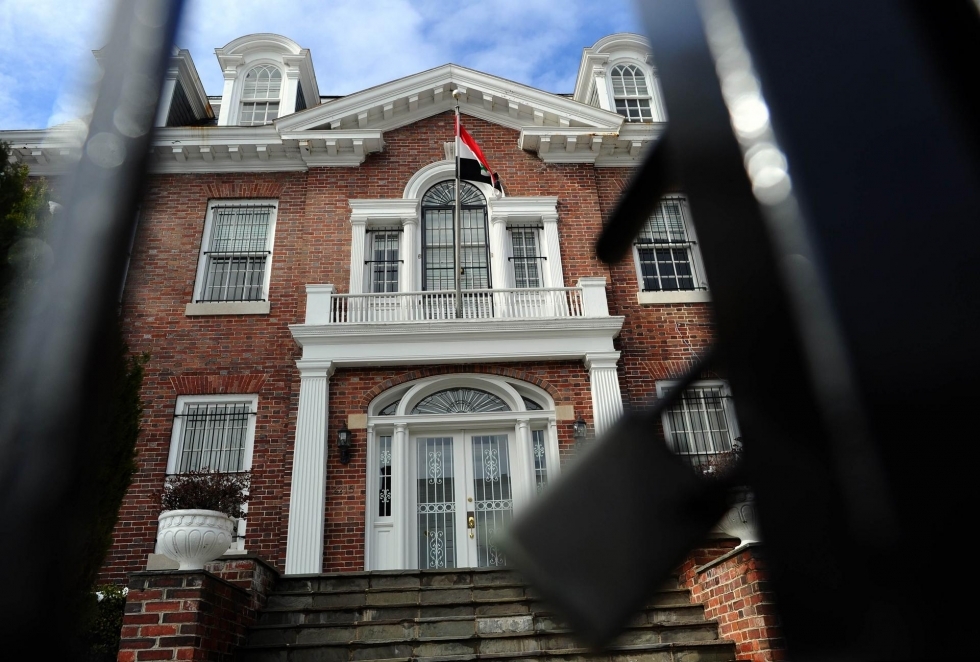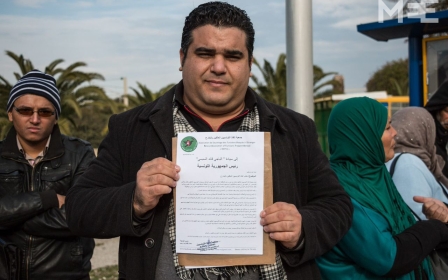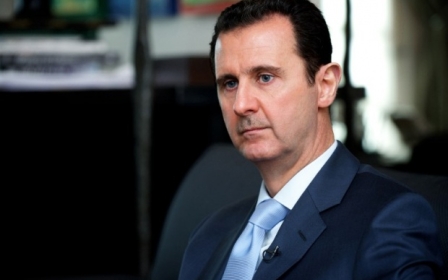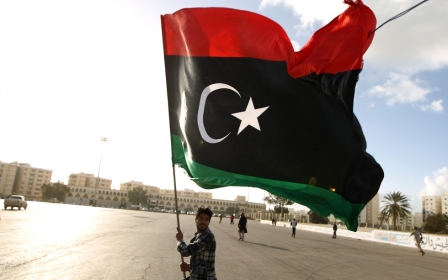Tunisia to reopen diplomatic ties with Syria, Libya

Tunisia will renew diplomatic ties with Syria in an attempt to help track down an estimated 3,000 Tunisian citizens who are fighting in the war-torn country and in neighboring Iraq.
Official ties with Syria were severed in February 2012 after former Tunisian President Moncef Marzouki expelled the Syrian ambassador over the rising numbers of casualties among civilians during a mass uprising against Bashar al-Assad.
On Thursday, Tunisia’s foreign minister said that a Syrian ambassador would now be “welcome” in Tunis.
"We will not have an ambassador there, but Tunisia will open a consulate or put in place a charge d'affaires, and a Syria ambassador is welcome to Tunisia, if Syria wishes so," Taieb Bakouch told reporters.
Bakouch did not give a timeframe for the re-establishment of relations.
“We do not believe that our interests are served by cutting off relations with Syria,” said Bakouch, pointing out that Tunisians living in Syria, including those currently in prison, had been “greatly harmed” by the previous government’s decision to end relations.
Bakouch indicated that the decision to renew relations had been taken because of the high numbers of Tunisian nationals who have taken up arms in Iraq and Syria.
Many of them are thought to be fighting alongside Islamic State – up to 7,000 Tunisians have joined the group, McClatchy reported last month.
Families of those who have gone to fight in Syria protested outside the Presidential Palace in February, demanding that the new government reopen diplomatic ties with Syria – many of their sons were trapped in Syrian prisons without any consular assistance.
Tunisia is also set to re-establish relations with neighbouring Libya.
The Tunisian foreign minister said that they would establish a consulate in the capital Tripoli, as well as in the second eastern city of Benghazi.
He said he was waiting for confirmation from the Tobruk-based government, the House of Representatives, that the safety of the Tunisian delegation could be guaranteed before sending officials.
Much of the international community cut off relations with the government of Syrian President Bashar al-Assad as the uprising against his rule became increasingly bloody.
However, a number of European countries have indicated privately that they would support a resumption of relations with Damascus.
Russia, Iran and China are among the few countries that have retained an embassy or a charge d’affaires in Damascus, a stronghold of Assad support, throughout the four-year conflict.
New MEE newsletter: Jerusalem Dispatch
Sign up to get the latest insights and analysis on Israel-Palestine, alongside Turkey Unpacked and other MEE newsletters
Middle East Eye delivers independent and unrivalled coverage and analysis of the Middle East, North Africa and beyond. To learn more about republishing this content and the associated fees, please fill out this form. More about MEE can be found here.




